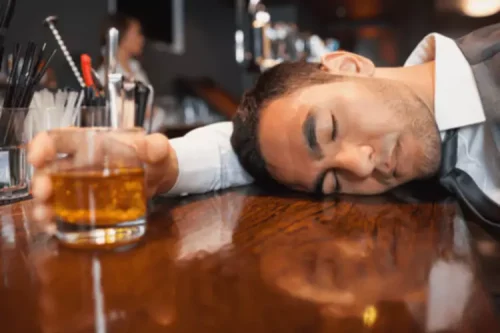
DTs can kick in anywhere from 48 to 72 hours after your last drink and can be life-threatening if not treated immediately. DTs are a whole different beast and are a sign of severe alcohol withdrawal. Alcohol shakes and delirium tremens (often called DTs) might seem similar because they both involve shaking, but they’re actually worlds apart in terms of severity and risk. This imbalance leads to your nervous system being a bit hyperactive. You might feel jittery, anxious, and yes, you might experience those shakes. Your body is basically trying to readjust, but it’s temporarily out of whack, causing you to feel shaky and uneasy.
What Helps With Alcohol Withdrawal? 18 Tips
Withdrawal symptoms occur as the brain struggles to adapt to the absence of alcohol and return to a state of equilibrium. Damage to the cerebellum from drinking usually takes about 10 years to occur and shows up on an MRI as shrinkage in the cerebellum. It is believed to be caused by the toxic effects alcohol has on the brain plus nutritional deficiencies (particularly of the B vitamin thiamine) common in alcoholism. Several support groups provide help for people with drinking issues.
How To Get Rid Of Shakes After Drinking
- Stress and anxiety can increase the severity of alcohol withdrawal symptoms.
- In addition, mental health disorders, such as anxiety, stress, and depression, can increase the severity of alcohol withdrawal symptoms like tremors.
- We recommend reaching out to others who are also going through withdrawal or joining group therapy.
- If you’re having difficulty sticking to your goal or just want some extra guidance, consider reaching out for professional support.
- Engaging in appropriate lifestyle habits can also help improve alcohol shakes.
These vitamins and minerals help support nerve function and overall health, which can be compromised due to long-term alcohol use. However, it’s important to consult a healthcare provider before starting any supplements, as they can advise on the most appropriate regimen based on individual health needs. They can be managed with prescribed medications such as benzodiazepines. Maintaining a calm and comfortable environment, staying hydrated and avoiding stimulants like caffeine is also helpful.

Withdrawal Symptoms

If the alcohol shakes persist for months after abstinence, the addiction specialists will typically recommend that the patient see a neurologist. An MRI can identify shrinkage in the cerebellum, which is a sign that it has been damaged from alcohol. This can also be caused by nutritional deficiencies, which can be rectified by supplementing thiamine. The alcohol shakes are usually https://ecosoberhouse.com/article/alcohol-vs-drugs-comparison-of-addictions/ not brought about because of one “bad” night or a binge; these come after prolonged alcohol use, gradually worsening over time. If this is what you or someone you know is experiencing, the severity can be measured by the nature of the shakes themselves. The association between alcohol shakes and DT (a nightmarish withdrawal symptom that can lead to death) boils down to seizures.
Steam cleaning is also a good way to getting rid of dust mites and bed bugs as neither pest tolerates high heat. You can use a handheld steamer or if you don’t have how to stop tremors from alcohol one of those then you could even steam clean your mattress using an iron. Baking soda is also a pretty good weapon against any dust mites that may be on your bed.

- This may lead to the brain sending incorrect messages to the nerves in the hand, making the hands and fingers shake.
- The type of detox addiction treatment or level of intensity needed depends on the severity of alcohol use and other health factors.
- How long it lasts depends on how much you drink, how long you have used alcohol like this, and even your body’s natural metabolism and processes.
- Our staff is prepared to help you focus on your physical health, so the detox process is as comfortable as possible.
- Consider how drinking again will only prolong your addiction and create more pain as you enter detox again.
- Alcohol shakes, also known as tremors, are a common sign of alcohol withdrawal.
